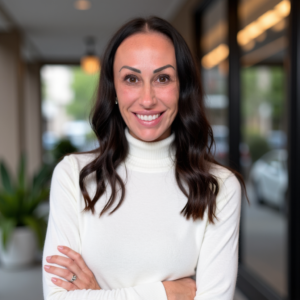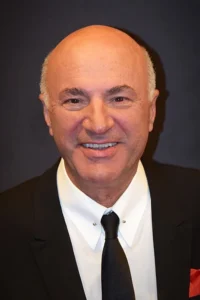Heather Karlie Vieira
Productivity Tip:
Remove Tiny Frictions
Instead of trying to over-optimize every part of your life (which, let’s face it, gets exhausting), focus on something smaller but surprisingly powerful: removing tiny frictions.
Start with this question: What’s one annoying thing I repeat daily that a script, shortcut, template, or setting could eliminate?
Think:
- Logging into something too often
- Switching apps mid-task
- Hunting for files
- Rewriting the same email
- Resetting the same settings
Even micro-frictions (extra clicks, small delays) significantly reduce task follow-through. So here’s the habit: once a week, identify one tiny friction in your routine and remove it. In time, these small tweaks can make a big difference.
Routine Breakdown
Heather Karlie Vieira, Art & Antiques Dealer
A Get-Up-And-Go Routine That Gives an Art Dealer Purpose

“My daily routine starts with the grateful understanding that I am living the life I choose, create and appreciate,” says Heather Karlie Vieira. As a single mom and entrepreneur “with a touch of Peter Pan”, she’s guided by a Mike Tyson quote: “Discipline is doing what you hate to do, but doing it like you love it.”
“Now, that may sound like a depressing way to view my profession of choice, so let me explain.” Here’s what she told us:
The Routine:
- “On the days when my alarm gets me out of bed hours before the sun comes up, I know there are finds waiting for me. Flea markets and antique shopping start early. So after a quick coffee, I’m out the door to source for the next antique show where I’ll be exhibiting.”
- “The sourcing soon becomes schlepping as all of the said finds must then be transported to my storage.”
- “Research and restoration are next, then loading the rental truck for a long drive to set up and sell at an antique show.”
- “There’s one constant in my daily routine – it’s anything but routine,” says Heather. “What guides me is being productive, making hay while the sun shines, if you will. The feeling of getting it done is what I’m chasing. And that always helps me to feel my best as I know I’m doing what I love (even if the Mike Tyson quote had you thinking otherwise).”
Why it works:
- Heather’s routine isn’t just about ticking boxes; it’s about finding meaning in what she does. “All of this didn’t happen overnight. I’ve been an art and furniture dealer for over 24 years, and only fairly recently have I begun to feel I’ve got a grasp of what I do. Thanks to the never-ending font of confidence that comes from surmounting oh so many failures, setbacks and obstacles, I feel like a powerful force for my two daughters. It’s showing them that living your dream comes with ups and downs, but you can push through by keeping your goal in mind, staying curious and practicing gratitude.”
Heather’s get-up-and-go routine isn’t what you typically read about, and that’s exactly why we love it. It’s a reminder that all routines are valid; you have to work with your situation, your surroundings, and what gives you purpose.
We’d love to hear from you about how your own routines are going—hit reply and let us know!
















